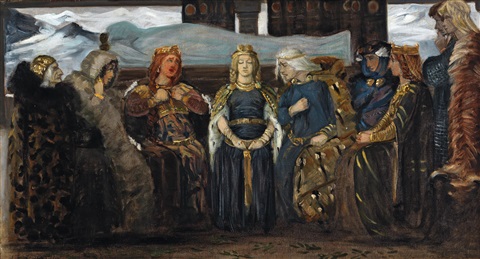Learning Life From Death:
I was 45 when my father died. Just two months earlier, we had celebrated his eighty-sixth birthday. He was physically, mentally, emotionally as fit as he always had been. I was very sad on his death, and I felt that it was not right that he had died. But then I remembered that a couple of years earlier, when the seventeen-year old Hannibal, son of my elder brother, had died in a drowning accident, my father had muttered from the depths of the sorrow: “This death is not right; if I had died that would have been OK, but not the death of a young man.” My father’s words had put me onto a lifelong journey for finding an answer to the question: is there a right time to die, and is there a right age to die?

Since then, my more than 30 years of research career as a biogerontologist has been a search for understanding the biological basis of life, ageing and death. After the death of my father, I almost became obsessed about the word ‘lifespan’, and about how long it should be, and how long it could be?
We biologists have a saying that “nothing in biology makes sense except in the light of the evolutionary theory”. The theory of evolution by natural selection, put forward by Charles Darwin, gives rational and scientific answers to those kind of questions about life, lifespan, ageing and eventual death. The Darwinian theory also makes it clear that in order to understand why we cannot live forever, we first need to understand as to why and how we live in the first place, and what is the biological purpose of life.
Studying biology has taught me that we are born, and then grow from infancy to childhood, to adolescence, and to adulthood where we give birth to the next generation. These life stages are genetically determined in all species. Hundreds and thousands of genes direct, monitor and regulate these stages. Evolutionary processes have developed highly effective and efficient mechanisms to help us survive and live through all those stages. We call such genes as “longevity assurance genes”. Fighting infections, healing wounds, regulating temperature, building bones and muscles, replacing damaged cells, and removing or repairing the damage in DNA, proteins and other molecules in the cells are some of the major longevity assurance processes inside our living bodies.
These longevity assurance mechanisms make it sure that species survive, reproduce and continue. You and I are alive today because our parents were able to produce children; as were their parents, and their parents, and their parents before them, all the way back to some ancient universal ancestor of life. A successful reproduction and the continuation of generations is the ‘biological purpose’ of life. This is the purpose of life for a bacterium, an insect, a rat, a cow, me and you. It may sound depressing, trivial and banal. After all, we are humans, and we would like to believe that our purpose in life is some higher and nobler one to which we must aspire.
We may or may not like it, but as a biological entity with the scientific name Homo sapiens, our purpose in life is exactly like that of all other biological entities. But becoming ‘human beings’ from Homo sapiens seems to be a development unique to our species, which involves language, art, philosophy, religion, culture, societies and civilization.
At the biological level, every species requires certain duration of time to grow, develop and reproduce. We biogerontologists call this lifespan as the ‘essential lifespan’ of a species. Essential lifespan can be few minutes for some bacteria, few days for worms and flies, and months or years for other life forms. For us, Homo sapiens, the essential lifespan is about 45 years. From nature’s perspective, our species does not need to live for more than 45 years.
Is the end of the essential lifespan then the right age to die? Darwin would probably say “yes” to that, and I fully agree.
The good news is that even though the nature does not require our survival beyond 45 years, it has not created any genes or other mechanisms to kill us at any time. Sooner or later we all die, whatever the apparent reasons. But there is no clock or timer counting down to the day, minute and second when the angel of death will do its job. Death just happens. That is what I have learnt about life from understanding the inevitability of death
Coming back to the question: is there a right time to die?
The answer from a biological and evolutionary perspective is YES, the right time to die is any time after the essential lifespan of our species. But from a social and personal perspective, the answer is NO, there is no right time to die. Yet it will happen either by chance or by choice. I know that my life will end with my death, but until that happens, I am going to live being as alive as possible.
This is exactly what I have learnt about life from my scientific understanding of ageing and death. My life, and that of all others, is both unique and, at the same time, a part of the network. I am glad to wake up every morning alive. I am also happy to go to bed every evening. I am fully satisfied with the continuation of this daily cycle. I have only one life to live. I will not give myself false consolations of reincarnation or resurrection. I do not cry over my past mistakes. I am alive now and live in the present.

